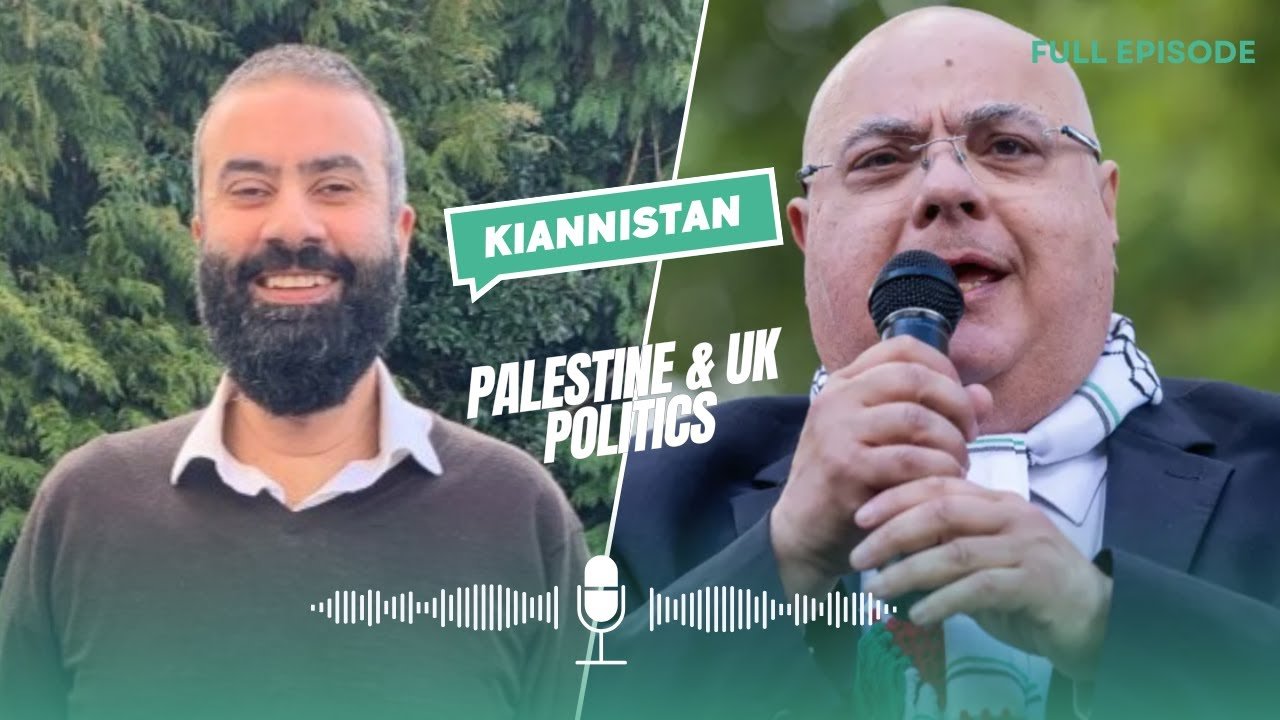The Fight for Palestine & Political Reform in the UK – Kamel Hawwash Interview
In an impassioned and insightful conversation, Professor Kamel Hawwash, a British Palestinian academic and long-time activist, shares his personal journey from civil engineering to the frontlines of political reform and Palestinian advocacy in the UK. Former chair of the Palestine Solidarity Campaign and now an independent political candidate, Hawwash reflects on his activism, the UK’s political landscape, and the moral crisis surrounding Palestine.
From Engineering to Advocacy
Hawwash, born in Saudi Arabia to Palestinian parents from Jerusalem, moved to the UK alone at age 15. After pursuing a career in engineering and academia, a chance encounter with the Palestinian Solidarity Campaign in the early 2000s shifted the course of his life. Witnessing Israel’s increasing aggression and the political apathy in Britain galvanized him into action.
Leadership and Political Awakening
Hawwash became deeply involved in PSC, eventually serving as its chair for five years. His activism expanded beyond demonstrations—he lobbied MPs and challenged the UK government’s unquestioning support of Israel. “We weren’t just waving flags,” he says, “we were pushing for ethical foreign policy.”
Disillusioned by Labour leader Keir Starmer’s comments endorsing the cutting off of essential services to Palestinians, Hawwash resigned from the party. “I was gutted,” he says. “A human rights lawyer should know better.” His resignation sparked national attention and led him to run as an independent MP in Birmingham Selly Oak.
Creating a New Political Space
Hawwash, alongside other like-minded individuals, is now working to establish a new political party named Reliance, which seeks to represent values-driven candidates untethered by traditional party whips. He believes the UK’s first-past-the-post system is broken, rewarding party loyalty over community representation. “People vote for logos, not leaders,” he remarks.
Although he lost the election, his candidacy was symbolic—directly challenging a Labour MP closely tied to pro-Israel lobbying groups. His campaign drew a grassroots following, with hundreds of volunteers and three Muslim women leading his campaign team.
The Genocide in Gaza and UK Hypocrisy
Much of the interview focuses on Israel’s ongoing assault on Gaza. Hawwash estimates the real death toll far exceeds official figures and highlights the humanitarian catastrophe, including tens of thousands of orphaned children and targeted destruction of hospitals, schools, and homes.
“The UK and US are complicit,” he asserts. “They are not just supporters—they are partners in this genocide.” Hawwash criticizes Western hypocrisy, especially when comparing Ukraine’s right to resist occupation with Palestine’s denied right to self-defense.
The Power of BDS and Public Protest
Hawwash is a strong advocate for the Boycott, Divestment, and Sanctions (BDS) movement. He notes its growing impact on multinational corporations like McDonald’s, which has faced backlash for its ties to the Israeli military. “BDS works. It hits Israel where it hurts—its economy and global image.”
He also highlights the UK public’s overwhelming support for Palestinians. “They know,” he says of those in Gaza, “that the people are with them. But they can’t understand how the governments can be so heartless.”
The Future of Reform
The interview closes with a reflection on Jerusalem and the heartbreak of exile. For Hawwash, Palestine is not just a cause—it’s home. His return to Al-Aqsa Mosque in 2023 after years of being barred entry by Israeli authorities was a deeply emotional moment. “We just burst into tears,” he recalls.
Looking ahead, Hawwash remains committed to building a just political alternative and hopes for a coalition of independent MPs and parties of conscience. “We need proportional representation, real reform, and moral leadership. Otherwise, the system will stay broken for another 50 years.”
🎥 Watch the full interview on YouTube:
Final Thoughts
Kamel Hawwash’s story is one of courage, principle, and persistence. As global awareness around Palestine grows, voices like his offer both clarity and hope—not just for Palestinians, but for all who seek justice and ethical leadership in the UK and beyond

